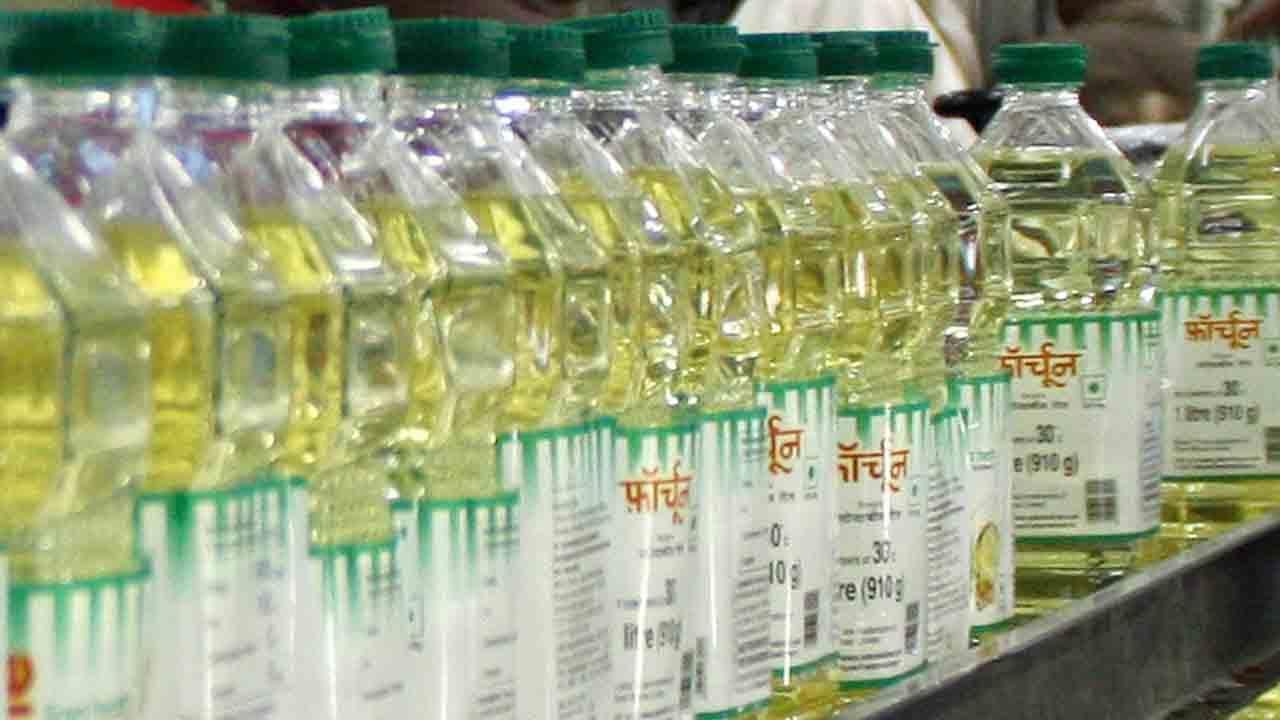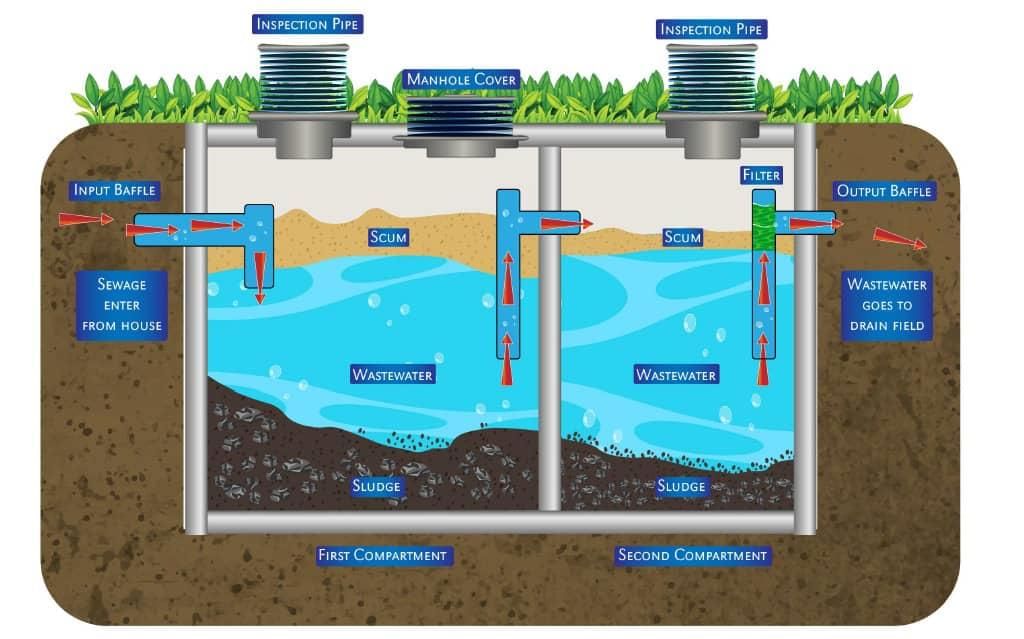UPSC Daily Current Affairs: 12th February 2025 | Current Affairs & Hindu Analysis: Daily, Weekly & Monthly PDF Download
GS3/Economy
14th Asian Fisheries and Aquaculture Forum
 Why in News?
Why in News?
The 14th Asian Fisheries and Aquaculture Forum (14AFAF) is scheduled to take place in New Delhi from February 12-14, 2025. This significant event aims to enhance collaboration within the fisheries and aquaculture sectors across Asia.
- The forum is a triennial event organized by the Asian Fisheries Society.
- India is hosting the forum for the second time, the first being in Kochi in 2007.
- Approximately 1,000 delegates from 24 countries will participate, including researchers, policymakers, and industry leaders.
- The theme is “Greening the Blue Growth in Asia-Pacific”.
Additional Details
- Significance of the Forum: The forum will showcase India's contributions to fisheries and aquaculture, focusing on sustainable practices and innovative approaches.
- The event is jointly organized by the Asian Fisheries Society, Indian Council of Agricultural Research (ICAR), and the Department of Fisheries (DoF), Government of India.
- India has become a key player in sustainable fisheries, ranking second globally in total fish production and aquaculture production.
- Location: The headquarters of the Asian Fisheries Society is in Kuala Lumpur, Malaysia.
This forum represents an important opportunity for India to strengthen international partnerships in the fisheries sector and to promote practices that lead to sustainable and economically viable fish production systems.
GS3/Environment
Addressing the Growing Threat of Forest Fires
Why in News?
The global crisis of forest fires is intensifying, driven by human activities and climate change. Recent wildfires in Los Angeles have underscored the devastating effects of these disasters, emphasizing the urgent need for preventive measures. Unfortunately, concerns about forest fires often arise only after significant losses in terms of life, property, and biodiversity. In India, the situation is equally concerning, with a large portion of the country's forests vulnerable to fires.
- Over 36% of India's forest cover is at risk of fires.
- Forest fire incidents have increased tenfold in the last 20 years.
- Human activities account for nearly 90% of forest fires in India.
- Climate change is exacerbating the situation with rising temperatures and prolonged dry spells.
Additional Details
- Environmental Damage: Forest fires lead to the loss of trees and biodiversity, disrupting ecosystems and threatening endangered species. They contribute significantly to carbon emissions, worsening global warming; in India alone, forest fires are responsible for the release of approximately 69 million tonnes of CO2 annually.
- Economic Losses: The destruction of timber and non-timber forest products affects communities that depend on forests for their livelihoods. A report by India's Ministry of Environment, Forest, and Climate Change indicates that forest degradation, including fires, results in an annual economic loss of around ₹1.74 lakh crore.
- Social Disruptions: Forest fires can force wildlife into human settlements, leading to increased human-animal conflicts. Additionally, smoke and air pollution from fires contribute to health hazards, particularly respiratory illnesses among vulnerable populations.
To effectively address the menace of forest fires, a multi-faceted approach is required, combining policy support, technological advancements, community involvement, and educational initiatives. Only through sustained efforts can we hope to protect our forests, wildlife, and communities from the devastating impacts of forest fires.
GS3/Economy
Gross Domestic Knowledge Product
Why in News?
The Indian government is revisiting its plan from 2021 to introduce a new metric called the Gross Domestic Knowledge Product (GDKP). This metric aims to measure the influence of knowledge on both economic and social spheres. Recently, the Ministry of Statistics and Programme Implementation (MoSPI) convened to discuss the conceptual framework of GDKP.
- The GDKP will provide insights into the contributions of innovation and intellectual assets to India’s economic growth.
- This new metric seeks to supplement the traditional Gross Domestic Product (GDP) by addressing the limitations of GDP in reflecting knowledge-driven sectors.
Additional Details
- About GDKP: The GDKP is proposed as a new metric that captures the contributions of knowledge-driven sectors and intellectual assets to the economy, in contrast to GDP, which focuses primarily on production and consumption.
- Need for GDKP: The government acknowledges that traditional economic indicators may not fully represent the value generated by intellectual capital and innovation, especially in a rapidly evolving technological landscape.
- Capturing the Knowledge Economy: India is witnessing growth in fields such as research, software development, and AI, which significantly contribute to economic advancement yet are not fully accounted for in GDP metrics.
- Aligning with Global Trends: Many advanced economies are developing indicators to assess intangible assets, and India aims to create a framework that aligns with these efforts.
- Policy and Investment Decisions: A clear GDKP could aid the government in crafting policies for education, research, and technology sectors, directing investment into crucial knowledge infrastructure.
- Challenges in Data Collection: Unlike GDP, which utilizes established indicators, GDKP necessitates new methodologies to accurately measure knowledge outputs, as current data is often fragmented.
- Integration with GDP: Some elements of knowledge contributions are included in the GDP under Gross Fixed Capital Formation, complicating the integration of GDKP without redundancy.
- Subjectivity in Measurement: The challenge lies in defining and quantifying knowledge parameters, which are inherently subjective and require careful refinement.
India's exploration of the GDKP reflects an ambition to transition from a production-centric economic model to one driven by knowledge. While there are significant challenges in defining and measuring knowledge contributions, a well-structured GDKP could yield valuable insights for policymakers and investment strategies in an increasingly digital economy.
GS2/Governance
Devolution Index Report Release
Why in News?
The Ministry of Panchayati Raj is set to unveil the comprehensive Devolution Index Report on 13th February 2025, at the Indian Institute of Public Administration (IIPA) in New Delhi. This report will provide a detailed evaluation of the status of decentralization in India.
- The Devolution Index analyzes the progress of decentralized governance across various States and Union Territories.
- It assesses six critical dimensions: Framework, Functions, Finances, Functionaries, Capacity Building, and Accountability of the Panchayats.
- The Index reflects the extent to which Panchayats can make and execute independent decisions, in accordance with Article 243G of the Constitution.
- It serves as a tool for enhancing cooperative federalism and local self-governance.
Additional Details
- Devolution Index: A product of extensive research and empirical analysis, it provides insights into the functioning of Panchayati Raj institutions.
- Importance for Stakeholders:
- For citizens, it ensures transparency in the operations and resource allocation of Panchayats.
- For elected representatives, it offers data-driven insights for advocacy and reforms.
- For government officials, it acts as a guide for implementing effective decentralization policies.
- Policymakers can leverage the Index to evaluate the overall health of local governance and pinpoint areas needing urgent reform.
- Significance: This initiative is aligned with the vision of Viksit Bharat, where Panchayats are fundamental in driving inclusive growth and sustainable development at the grassroots level.
In conclusion, the Devolution Index is a pivotal instrument for assessing and enhancing the efficacy of local governance in India, promoting the empowerment of Panchayati Raj institutions for better rural development.
GS2/International Relations
UK-India Young Professionals Scheme
Why in News?
The ballot for the United Kingdom-India Young Professionals Scheme (YPS) will open next week, marking an important opportunity for young Indian professionals seeking to work in the UK.
- The YPS allows Indian citizens aged 18 to 30 to live and work in the UK for up to two years.
- The scheme was launched following an MoU signed in May 2021 and was announced at the G20 summit in November 2022.
Additional Details
- Eligibility Criteria: To be eligible for the visa under this initiative, applicants must:
- Be an Indian national aged between 18 and 30 years.
- Hold a bachelor's degree or higher.
- Have at least £2,530 in savings.
- Not have any children under the age of 18 who live with or whom they financially support.
- Applicants must be selected in the India Young Professionals Scheme ballot before applying for the Young Professionals Scheme visa.
- Individuals who have previously been in the UK under this scheme or the Youth Mobility Scheme visa are not eligible to apply.
- If granted a visa, applicants must enter the UK within six months of the visa issue date.
- Once in the UK, applicants are allowed to:
- Study certain degree programs, but may require an additional certificate under the Academic Technology Approval Scheme (ATAS) for specific courses.
- Be self-employed and start a company, provided that the premises are rented, equipment is worth no more than £5,000, and there are no employees.
This scheme represents a significant step in enhancing mobility between India and the UK, providing young professionals with valuable international experience.
GS2/International Relations
Regulation of Edible Oil Imports under SAFTA
 Why in News?
Why in News?
The Solvent Extractors’ Association of India (SEA) has approached the Government to impose regulations on the import of edible oils from Nepal and other SAARC countries, citing misuse of the South Asian Free Trade Agreement (SAFTA) norms.
- SEA's request highlights concerns over the misuse of SAFTA by certain countries.
- SAFTA aims to enhance trade and economic cooperation among SAARC nations.
- The agreement has been in effect since 2006, following the earlier 1993 Preferential Trading Arrangement.
Additional Details
- About SAFTA: SAFTA is a free trade agreement among the South Asian Association for Regional Cooperation (SAARC), which includes Afghanistan, Bangladesh, Bhutan, India, Maldives, Nepal, Pakistan, and Sri Lanka.
- Objectives of SAFTA:
- Eliminate trade barriers and facilitate the cross-border movement of goods.
- Promote fair competition and ensure equitable benefits among all contracting states.
- Create mechanisms for effective implementation and dispute resolution.
- Establish a framework for further regional cooperation to enhance mutual benefits.
The SEA's appeal emphasizes the need for regulatory measures to prevent the exploitation of trade agreements, ensuring that the objectives of SAFTA are met while safeguarding the interests of Indian producers.
GS3/Economy
India’s Cities as Engines of Growth
 Why in News?
Why in News?
The Union Budget 2025 has placed a significant emphasis on urban development, identifying it as one of the six key areas for transformative reforms. This renewed focus underscores the government’s commitment to enhancing urban areas as essential components of India’s broader development strategy.
- The Ministry of Housing and Urban Affairs (MoHUA) has received an allocation of Rs. 96,777 crore for the 2025-26 budget, which constitutes 1.91% of the total estimated expenditure.
- Recent years have seen a consistent increase in budgetary allocations for urban development, rising from Rs. 50,000 crore in 2021 to Rs. 79,000 crore in 2024, and now to Rs. 96,777 crore in 2025.
- Key initiatives funded by the budget include the Pradhan Mantri Awas Yojana (PMAY-Urban), the Smart Cities Mission, and the Atal Mission for Rejuvenation and Urban Transformation (AMRUT).
- Allocations have also been made for urban transport projects, especially Metro rail and Mass Rapid Transit systems, alongside a revamp of the Prime Minister Street Vendors AtmaNirbhar Nidhi (PM SVANidhi) to support urban poor incomes.
- The budget introduces the "Urban Challenge Fund," which will evaluate proposals based on three categories: Cities as growth hubs, creative city redevelopment, and water and sanitation projects.
Additional Details
- Urban Challenge Fund: This fund will finance up to 25% of the cost of bankable projects, requiring at least 50% of the project cost to be sourced from bonds, bank loans, or Public-Private Partnerships (PPPs).
- The structure of the Urban Challenge Fund aims to promote private enterprise participation, empowering Urban Local Bodies (ULBs) to secure their own financing for projects.
- The primary revenue sources for ULBs include tax revenues (property tax, professional tax, entertainment tax) and non-tax revenues (user fees, parking fees, water supply fees, etc.).
- For instance, in the 2021-22 financial year, the Brihanmumbai Municipal Corporation (BMC) derived 19% of its revenue from taxes and 54% from fees and user charges.
- Smaller cities often rely heavily on grants from central and state governments; for example, 57% of the Kochi Municipal Corporation's revenue came from such grants in 2021-22.
- Municipal bonds are a popular method for ULBs to raise funds, with the Ahmedabad Municipal Corporation being a notable example of early issuance for water and sanitation projects.
- ULBs can also obtain loans from financial institutions, such as HUDCO and the World Bank, for specific initiatives.
- Public-private partnerships represent a growing trend, with 5-10% of urban projects in India being funded through such collaborations, enhancing both finance and expertise.
The focus on urban development in the Union Budget 2025 reflects a strategic commitment to empower cities as crucial engines of economic growth and to ensure sustainable urban infrastructure is developed for the future.
GS3/Defence & Security
Exercise CYCLONE-III
Why in News?
The 3rd edition of the Joint Special Forces Exercise CYCLONE commenced at Mahajan Field Firing Ranges in Rajasthan. It's important to note that this is distinct from the 'Desert Cyclone 2024' joint military exercise held between India and the UAE in January 2024.
- The exercise focuses on enhancing interoperability and joint tactical operations between India and Egypt.
- It runs from 10th to 23rd February 2025 and is conducted annually, alternating between India and Egypt.
- The previous iteration, CYCLONE-II, took place in Egypt in January 2024.
Additional Details
- Focus Areas: The training emphasizes high-intensity operations in desert and semi-desert terrains, including counter-terrorism, close quarters battle (CQB), hostage rescue, and heliborne operations.
- Final Validation Exercise: A 48-hour final validation exercise will test combat strategies in semi-desert conditions, while showcasing Indian defense technology to strengthen military ties.
- This exercise enhances India-Egypt defense cooperation, improves joint counter-terrorism capabilities, and builds readiness for future operations.
- It also boosts India's strategic outreach in the Middle East and North Africa (MENA) region, reinforcing defense collaborations and regional security.
In conclusion, Exercise CYCLONE-III represents a significant step towards improving defense relations and operational capabilities between India and Egypt, highlighting their commitment to mutual security interests.
GS3/Economy
Revised Market Intervention Scheme Guidelines
Why in News?
The central government has recently updated the guidelines for the Market Intervention Scheme (MIS), enhancing its scope and operational efficiency to better support farmers in the procurement of perishable agricultural and horticultural commodities.
- The MIS is implemented upon request from State or Union Territory (UT) governments for the procurement of perishable commodities where Minimum Support Price (MSP) is not applicable.
- Activation of the MIS occurs only when there is a minimum market price reduction of 10% compared to the previous normal year.
- The revised guidelines now integrate the MIS as a component of the PM-AASHA scheme.
- The procurement limit for crop production quantity has been increased from 20% to 25%.
- States now have the option to directly transfer the difference between the Market Intervention Price (MIP) and the selling price to farmers' bank accounts instead of physical procurement.
Additional Details
- Reimbursement: The operational costs incurred during storage and transportation of crops from producing states to consuming states will be reimbursed by central nodal agencies such as NAFED and NCCF. This is aimed at supporting farmers and ensuring they receive fair compensation.
- Farmers will benefit from these changes as they provide greater flexibility and financial support in times of market distress.
The updates to the Market Intervention Scheme are designed to enhance the government's ability to respond to market fluctuations and provide timely support to farmers, ultimately aiming to stabilize the agricultural sector and ensure farmers' livelihoods.
GS2/International Relations
Phase 2 of ASPIRE Programme
 Why in News?
Why in News?
The 4th India-UK Energy Dialogue, which was chaired by the Union Minister of Power alongside the UK's Energy Security Secretary, took place recently in New Delhi. During this event, the dignitaries initiated Phase-2 of the ASPIRE programme aimed at enhancing power supply, improving energy efficiency, and advancing renewable energy initiatives.
- The ASPIRE programme, officially launched in November 2021, is part of the India-UK Energy for Growth Partnership.
- The programme focuses on expanding renewable energy, reforming power distribution, and enhancing energy efficiency.
Additional Details
- Round-the-Clock (RTC) Power Supply: This initiative aims to provide uninterrupted electricity through the integration of smart grid technologies.
- Renewable Energy Expansion: The programme seeks to scale up investments in solar, wind, and offshore wind projects.
- Industrial Energy Efficiency & Decarbonization: There will be efforts to reduce carbon emissions in major industries, including steel, aluminum, and cement.
- Power Distribution & Market Reforms: Enhancements will be made in smart metering, grid resilience, and regulatory cooperation between the Central Electricity Regulatory Commission (CERC) in India and the Office of Gas and Electricity Markets (OFGEM) in the UK.
- Offshore Wind Development: A UK-India Offshore Wind Taskforce will be established to promote supply chains and financing models.
- Electric Mobility & Green Data Centers: The programme will focus on expanding electric vehicle (EV) charging infrastructure and implementing sustainable energy solutions.
Overall, the ASPIRE Phase-2 programme is a strategic initiative that aims to bolster the energy sector in India while strengthening the bilateral relationship between India and the UK in the field of energy.
GS2/Governance
Struggling with Poor Cyber Security: Key Issues and Responses
Why in News?
Kaveri 2.0, a web portal launched in 2023 to facilitate property registrations in Karnataka, recently experienced a significant DDoS attack executed by AI-powered bots. This incident has raised serious concerns regarding the state’s cybersecurity measures and preparedness.
- The DDoS attack on Kaveri 2.0 highlights critical vulnerabilities in Karnataka's cybersecurity framework.
- Past cyber incidents indicate a pattern of inadequate responses and poor inter-departmental coordination.
- The absence of a dedicated Cyber Security Operation Centre contributes to ongoing cybersecurity risks.
Additional Details
- DDoS Attack: A Distributed Denial of Service (DDoS) attack is a type of cyberattack where numerous computers overwhelm a website with excessive traffic, leading to slowdowns or crashes.
- Lack of Proactive Cybersecurity Measures: Despite previous incidents like the 2017 WannaCry ransomware attack, the state has failed to implement robust preventive measures, evident from the DDoS attack on Kaveri 2.0.
- Poor Coordination Between Departments: The e-Governance Department did not involve the State cyber crime police until weeks after the attack commenced, indicating resistance to sharing cybersecurity concerns.
- Lack of a Dedicated Cybersecurity Infrastructure: Unlike Maharashtra and Odisha, Karnataka does not have a Cyber Security Operation Centre, which has left digital infrastructure vulnerable.
In conclusion, the recent DDoS attack on Kaveri 2.0 serves as a wake-up call for Karnataka to enhance its cybersecurity measures. Establishing a Cyber Security Operation Centre and improving inter-departmental coordination are crucial steps toward safeguarding the state's digital assets and improving response times to cyber threats.
|
52 videos|5374 docs|1136 tests
|
FAQs on UPSC Daily Current Affairs: 12th February 2025 - Current Affairs & Hindu Analysis: Daily, Weekly & Monthly
| 1. What is the significance of the 14th Asian Fisheries and Aquaculture Forum? |  |
| 2. How are forest fires being addressed in relation to environmental policies? |  |
| 3. What is the Gross Domestic Knowledge Product (GDKP) and its relevance? |  |
| 4. What are the key features of the UK-India Young Professionals Scheme? |  |
| 5. How does the Regulation of Edible Oil Imports under SAFTA impact trade in South Asia? |  |
















